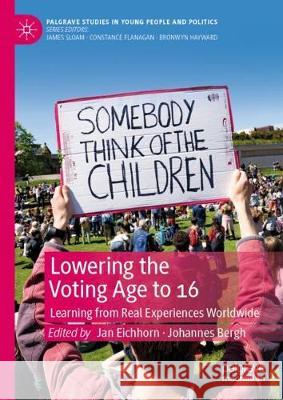Lowering the Voting Age to 16: Learning from Real Experiences Worldwide » książka
topmenu
Lowering the Voting Age to 16: Learning from Real Experiences Worldwide
ISBN-13: 9783030325404 / Angielski / Twarda / 2019 / 245 str.
Lowering the Voting Age to 16: Learning from Real Experiences Worldwide
ISBN-13: 9783030325404 / Angielski / Twarda / 2019 / 245 str.
cena 523,30
(netto: 498,38 VAT: 5%)
Najniższa cena z 30 dni: 501,19
(netto: 498,38 VAT: 5%)
Najniższa cena z 30 dni: 501,19
Termin realizacji zamówienia:
ok. 16-18 dni roboczych.
ok. 16-18 dni roboczych.
Darmowa dostawa!
Kategorie BISAC:
Wydawca:
Palgrave MacMillan
Seria wydawnicza:
Język:
Angielski
ISBN-13:
9783030325404
Rok wydania:
2019
Dostępne języki:
Numer serii:
000814711
Ilość stron:
245
Waga:
0.46 kg
Wymiary:
21.01 x 14.81 x 1.6
Oprawa:
Twarda
Dodatkowe informacje:
Wydanie ilustrowane











